When it comes to selecting the perfect pair of shoes, the debate between synthetic leather and genuine leather has been ongoing for years. Both materials offer distinct qualities and benefits, making it a challenging decision for consumers to make. In this article, we will delve into the differences between synthetic leather shoes and leather shoes, exploring various factors such as quality, durability, sustainability, and cost. By understanding the characteristics of each material, you can make an informed choice that aligns with your preferences and values. Quality and Appearance One of the primary considerations when deciding between synthetic leather shoes and leather shoes is the quality and appearance of the material. Leather, being a natural material sourced from animal hide, exudes a sense of luxury and sophistication. Its unique grain patterns and textures lend an air of elegance to any shoe design, making it a popular choice for dress shoes, boots, and high-end footwear. The supple feel of leather also conforms to the shape of the foot over time, providing a custom fit that enhances comfort. On the other hand, synthetic leather, also known as faux leather or pleather, is a man-made alternative that mimics the look and feel of genuine leather. While synthetic leather may lack the authenticity and richness of real leather, advancements in technology have enabled manufacturers to replicate the appearance of leather with remarkable accuracy. Synthetic leather shoes come in a wide range of colors and finishes, offering versatility in design options that cater to diverse style preferences. Durability and Longevity Durability is a crucial factor to consider when assessing the longevity of your shoes. Leather shoes are renowned for their durability and strength, with properly maintained leather footwear lasting for many years. The natural fibers in leather allow it to breathe, preventing moisture buildup and reducing the risk of odor and microbial growth. Additionally, leather develops a rich patina over time, adding character to the shoes and enhancing their aesthetic appeal. In comparison, synthetic leather shoes may have a shorter lifespan due to the synthetic materials used in their production. While advancements have been made to improve the durability of synthetic leather, it may not possess the same resilience as genuine leather. However, synthetic leather is generally more resistant to stains and water damage, making it a practical choice for individuals seeking low-maintenance footwear that withstands everyday wear and tear. Sustainability and Environmental Impact The issue of sustainability and environmental impact has become increasingly important in the realm of consumer goods, including footwear. Leather production involves the use of animal hides, raising concerns about animal welfare and ethical sourcing practices. While the leather industry has made strides in promoting sustainable farming practices and responsible leather production, the environmental impact of leather tanning processes, such as chromium-based tanning, remains a cause for environmental concern. In contrast, synthetic leather offers a cruelty-free alternative that addresses the ethical considerations associated with animal-derived materials. Faux leather is typically made from polyurethane or PVC, synthetic polymers that can be produced without animal harm. Moreover, the manufacturing process of synthetic leather consumes fewer resources and generates less waste compared to traditional leather production, making it a more environmentally conscious choice for eco-conscious consumers. Cost and Affordability Cost is a significant factor to consider when purchasing shoes, as it influences the accessibility and affordability of different material options. Leather shoes are generally more expensive than synthetic leather shoes due to the premium quality and craftsmanship associated with genuine leather. The intricate tanning and finishing processes involved in leather production contribute to the higher price point of leather footwear, making it a luxurious investment for those who prioritize quality and prestige. Conversely, synthetic leather shoes are a budget-friendly alternative that offers a cost-effective solution for consumers seeking fashionable footwear at a more affordable price. The synthetic materials used in faux leather production are often less expensive than genuine leather, allowing manufacturers to create stylish and trendy shoe designs that cater to a wide range of budgetary constraints. While synthetic leather may not possess the same intrinsic value as real leather, it provides a practical and economic option for individuals looking to expand their shoe collection without breaking the bank. Making Your Choice: Synthetic Leather vs. Leather Shoes In conclusion, the debate between synthetic leather shoes and leather shoes ultimately boils down to personal preferences, priorities, and values. Leather shoes exude a sense of luxury and sophistication, offering unparalleled quality and durability that stand the test of time.
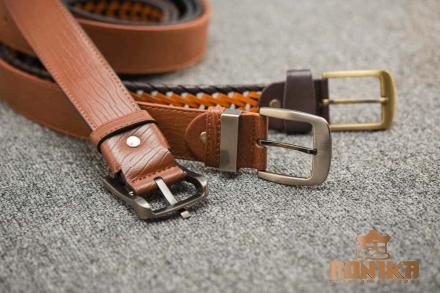
.
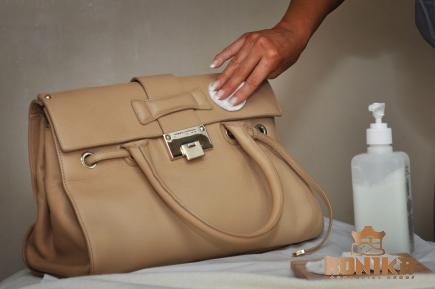 On the other hand, synthetic leather shoes provide a sustainable and affordable alternative that caters to ethical considerations and budget constraints. Whether you opt for the timeless elegance of leather or the modern versatility of synthetic leather, both materials have their unique strengths and characteristics that make them appealing choices for footwear. By evaluating the qualities of each material in terms of quality, durability, sustainability, and cost, you can make an informed decision that aligns with your individual needs and preferences. In the end, the choice between synthetic leather shoes and leather shoes is a personal one that reflects your style sensibilities, values, and lifestyle. Whichever option you choose, remember that the most important factor is selecting a pair of shoes that not only looks good but also feels comfortable and suits your unique sense of fashion and identity. When it comes to selecting the perfect pair of shoes, the debate between synthetic leather and genuine leather has been ongoing for years. Both materials offer distinct qualities and benefits, making it a challenging decision for consumers to make. In this article, we will delve into the differences between synthetic leather shoes and leather shoes, exploring various factors such as quality, durability, sustainability, and cost. By understanding the characteristics of each material, you can make an informed choice that aligns with your preferences and values. Quality and Appearance One of the primary considerations when deciding between synthetic leather shoes and leather shoes is the quality and appearance of the material. Leather, being a natural material sourced from animal hide, exudes a sense of luxury and sophistication. Its unique grain patterns and textures lend an air of elegance to any shoe design, making it a popular choice for dress shoes, boots, and high-end footwear. The supple feel of leather also conforms to the shape of the foot over time, providing a custom fit that enhances comfort. On the other hand, synthetic leather, also known as faux leather or pleather, is a man-made alternative that mimics the look and feel of genuine leather. While synthetic leather may lack the authenticity and richness of real leather, advancements in technology have enabled manufacturers to replicate the appearance of leather with remarkable accuracy.
On the other hand, synthetic leather shoes provide a sustainable and affordable alternative that caters to ethical considerations and budget constraints. Whether you opt for the timeless elegance of leather or the modern versatility of synthetic leather, both materials have their unique strengths and characteristics that make them appealing choices for footwear. By evaluating the qualities of each material in terms of quality, durability, sustainability, and cost, you can make an informed decision that aligns with your individual needs and preferences. In the end, the choice between synthetic leather shoes and leather shoes is a personal one that reflects your style sensibilities, values, and lifestyle. Whichever option you choose, remember that the most important factor is selecting a pair of shoes that not only looks good but also feels comfortable and suits your unique sense of fashion and identity. When it comes to selecting the perfect pair of shoes, the debate between synthetic leather and genuine leather has been ongoing for years. Both materials offer distinct qualities and benefits, making it a challenging decision for consumers to make. In this article, we will delve into the differences between synthetic leather shoes and leather shoes, exploring various factors such as quality, durability, sustainability, and cost. By understanding the characteristics of each material, you can make an informed choice that aligns with your preferences and values. Quality and Appearance One of the primary considerations when deciding between synthetic leather shoes and leather shoes is the quality and appearance of the material. Leather, being a natural material sourced from animal hide, exudes a sense of luxury and sophistication. Its unique grain patterns and textures lend an air of elegance to any shoe design, making it a popular choice for dress shoes, boots, and high-end footwear. The supple feel of leather also conforms to the shape of the foot over time, providing a custom fit that enhances comfort. On the other hand, synthetic leather, also known as faux leather or pleather, is a man-made alternative that mimics the look and feel of genuine leather. While synthetic leather may lack the authenticity and richness of real leather, advancements in technology have enabled manufacturers to replicate the appearance of leather with remarkable accuracy.
..
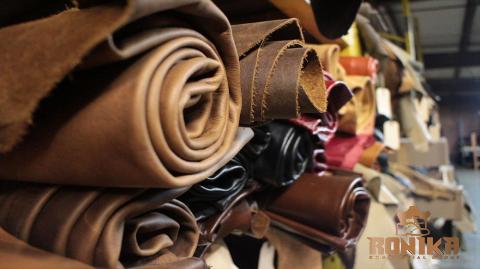 Synthetic leather shoes come in a wide range of colors and finishes, offering versatility in design options that cater to diverse style preferences. Durability and Longevity Durability is a crucial factor to consider when assessing the longevity of your shoes. Leather shoes are renowned for their durability and strength, with properly maintained leather footwear lasting for many years. The natural fibers in leather allow it to breathe, preventing moisture buildup and reducing the risk of odor and microbial growth. Additionally, leather develops a rich patina over time, adding character to the shoes and enhancing their aesthetic appeal. In comparison, synthetic leather shoes may have a shorter lifespan due to the synthetic materials used in their production. While advancements have been made to improve the durability of synthetic leather, it may not possess the same resilience as genuine leather. However, synthetic leather is generally more resistant to stains and water damage, making it a practical choice for individuals seeking low-maintenance footwear that withstands everyday wear and tear. Sustainability and Environmental Impact The issue of sustainability and environmental impact has become increasingly important in the realm of consumer goods, including footwear. Leather production involves the use of animal hides, raising concerns about animal welfare and ethical sourcing practices. While the leather industry has made strides in promoting sustainable farming practices and responsible leather production, the environmental impact of leather tanning processes, such as chromium-based tanning, remains a cause for environmental concern. In contrast, synthetic leather offers a cruelty-free alternative that addresses the ethical considerations associated with animal-derived materials. Faux leather is typically made from polyurethane or PVC, synthetic polymers that can be produced without animal harm.
Synthetic leather shoes come in a wide range of colors and finishes, offering versatility in design options that cater to diverse style preferences. Durability and Longevity Durability is a crucial factor to consider when assessing the longevity of your shoes. Leather shoes are renowned for their durability and strength, with properly maintained leather footwear lasting for many years. The natural fibers in leather allow it to breathe, preventing moisture buildup and reducing the risk of odor and microbial growth. Additionally, leather develops a rich patina over time, adding character to the shoes and enhancing their aesthetic appeal. In comparison, synthetic leather shoes may have a shorter lifespan due to the synthetic materials used in their production. While advancements have been made to improve the durability of synthetic leather, it may not possess the same resilience as genuine leather. However, synthetic leather is generally more resistant to stains and water damage, making it a practical choice for individuals seeking low-maintenance footwear that withstands everyday wear and tear. Sustainability and Environmental Impact The issue of sustainability and environmental impact has become increasingly important in the realm of consumer goods, including footwear. Leather production involves the use of animal hides, raising concerns about animal welfare and ethical sourcing practices. While the leather industry has made strides in promoting sustainable farming practices and responsible leather production, the environmental impact of leather tanning processes, such as chromium-based tanning, remains a cause for environmental concern. In contrast, synthetic leather offers a cruelty-free alternative that addresses the ethical considerations associated with animal-derived materials. Faux leather is typically made from polyurethane or PVC, synthetic polymers that can be produced without animal harm.
…
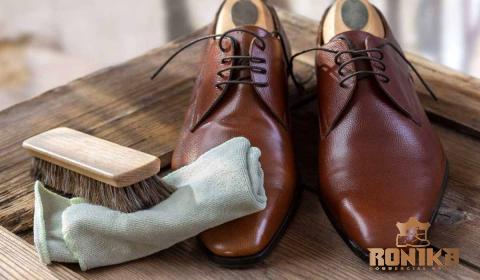 Moreover, the manufacturing process of synthetic leather consumes fewer resources and generates less waste compared to traditional leather production, making it a more environmentally conscious choice for eco-conscious consumers. Cost and Affordability Cost is a significant factor to consider when purchasing shoes, as it influences the accessibility and affordability of different material options. Leather shoes are generally more expensive than synthetic leather shoes due to the premium quality and craftsmanship associated with genuine leather. The intricate tanning and finishing processes involved in leather production contribute to the higher price point of leather footwear, making it a luxurious investment for those who prioritize quality and prestige. Conversely, synthetic leather shoes are a budget-friendly alternative that offers a cost-effective solution for consumers seeking fashionable footwear at a more affordable price. The synthetic materials used in faux leather production are often less expensive than genuine leather, allowing manufacturers to create stylish and trendy shoe designs that cater to a wide range of budgetary constraints. While synthetic leather may not possess the same intrinsic value as real leather, it provides a practical and economic option for individuals looking to expand their shoe collection without breaking the bank. Making Your Choice: Synthetic Leather vs. Leather Shoes In conclusion, the debate between synthetic leather shoes and leather shoes ultimately boils down to personal preferences, priorities, and values. Leather shoes exude a sense of luxury and sophistication, offering unparalleled quality and durability that stand the test of time. On the other hand, synthetic leather shoes provide a sustainable and affordable alternative that caters to ethical considerations and budget constraints. Whether you opt for the timeless elegance of leather or the modern versatility of synthetic leather, both materials have their unique strengths and characteristics that make them appealing choices for footwear. By evaluating the qualities of each material in terms of quality, durability, sustainability, and cost, you can make an informed decision that aligns with your individual needs and preferences. In the end, the choice between synthetic leather shoes and leather shoes is a personal one that reflects your style sensibilities, values, and lifestyle. Whichever option you choose, remember that the most important factor is selecting a pair of shoes that not only looks good but also feels comfortable and suits your unique sense of fashion and identity.
Moreover, the manufacturing process of synthetic leather consumes fewer resources and generates less waste compared to traditional leather production, making it a more environmentally conscious choice for eco-conscious consumers. Cost and Affordability Cost is a significant factor to consider when purchasing shoes, as it influences the accessibility and affordability of different material options. Leather shoes are generally more expensive than synthetic leather shoes due to the premium quality and craftsmanship associated with genuine leather. The intricate tanning and finishing processes involved in leather production contribute to the higher price point of leather footwear, making it a luxurious investment for those who prioritize quality and prestige. Conversely, synthetic leather shoes are a budget-friendly alternative that offers a cost-effective solution for consumers seeking fashionable footwear at a more affordable price. The synthetic materials used in faux leather production are often less expensive than genuine leather, allowing manufacturers to create stylish and trendy shoe designs that cater to a wide range of budgetary constraints. While synthetic leather may not possess the same intrinsic value as real leather, it provides a practical and economic option for individuals looking to expand their shoe collection without breaking the bank. Making Your Choice: Synthetic Leather vs. Leather Shoes In conclusion, the debate between synthetic leather shoes and leather shoes ultimately boils down to personal preferences, priorities, and values. Leather shoes exude a sense of luxury and sophistication, offering unparalleled quality and durability that stand the test of time. On the other hand, synthetic leather shoes provide a sustainable and affordable alternative that caters to ethical considerations and budget constraints. Whether you opt for the timeless elegance of leather or the modern versatility of synthetic leather, both materials have their unique strengths and characteristics that make them appealing choices for footwear. By evaluating the qualities of each material in terms of quality, durability, sustainability, and cost, you can make an informed decision that aligns with your individual needs and preferences. In the end, the choice between synthetic leather shoes and leather shoes is a personal one that reflects your style sensibilities, values, and lifestyle. Whichever option you choose, remember that the most important factor is selecting a pair of shoes that not only looks good but also feels comfortable and suits your unique sense of fashion and identity.




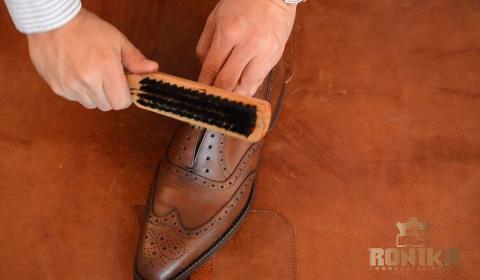
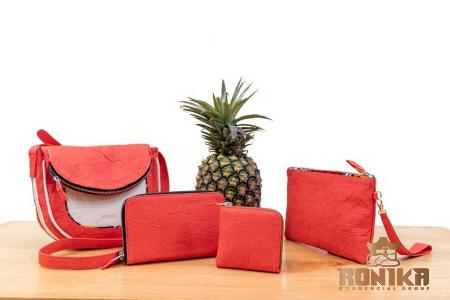
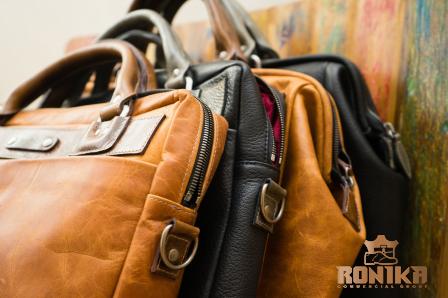
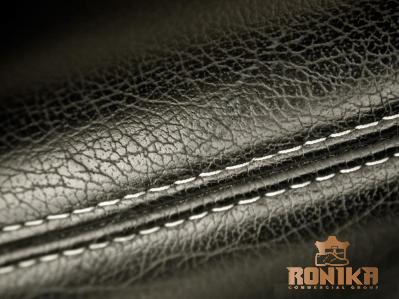
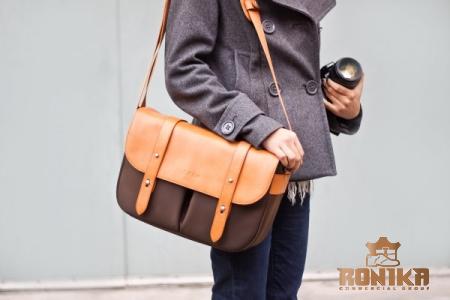

Your comment submitted.